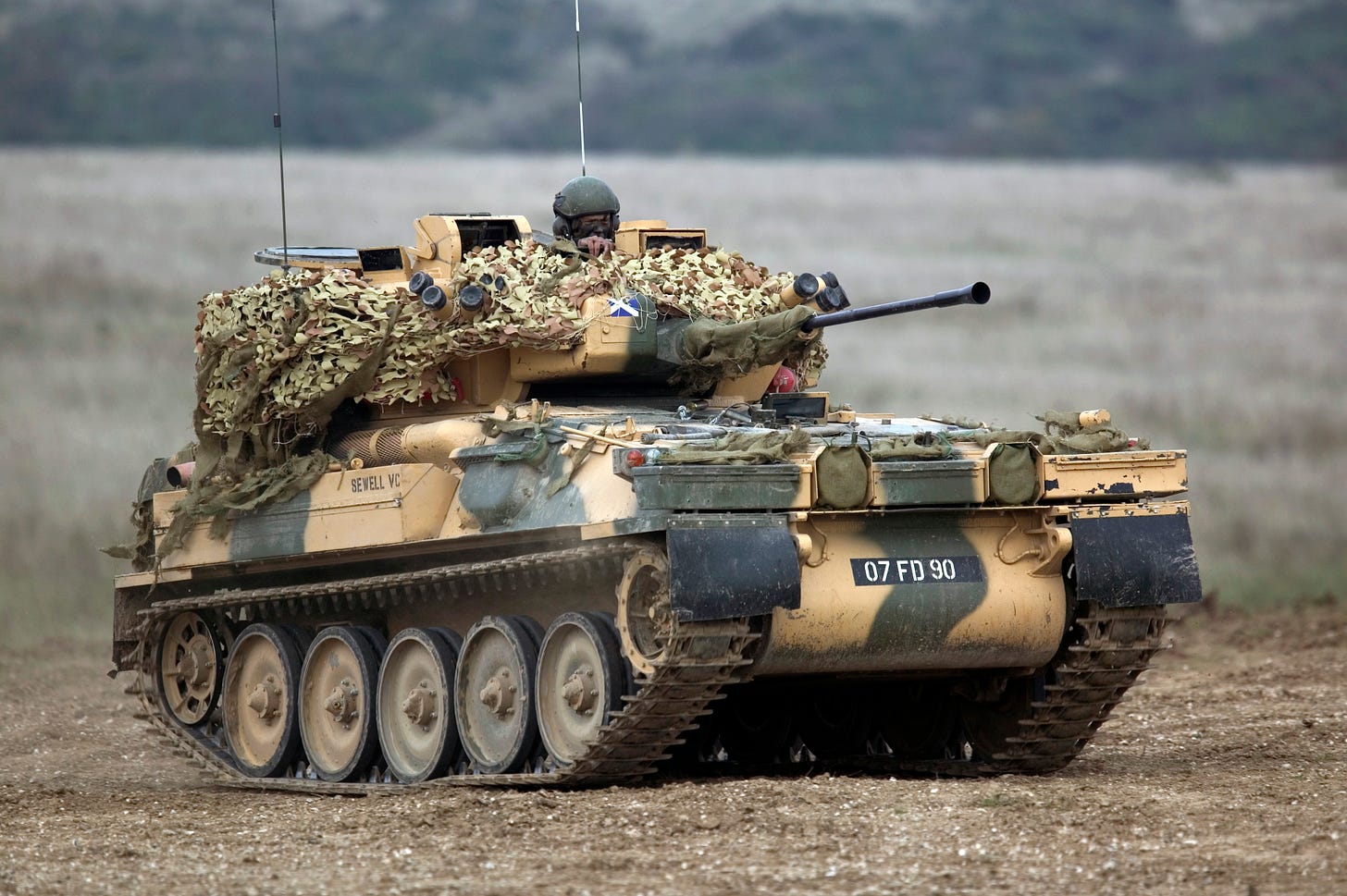Ukraine’s British Tank Mod: Why Ditch the Cannon for a Machine Gun?

In August 2023, the UK delivered 23 FV107 Scimitar MK II light tanks to Ukraine as part of a larger package of military aid to help the country repel the Russian invasion. Now, Ukraine has been heavily modifying their Scimitars in a way that would make an old-school British armor officer spit their tea all over their crumpets.
Ukraine took the FV107 Scimitar, armed with a 30mm cannon, and replaced that main gun with a Soviet-era 14.5mm KPVT heavy machine gun!
Bloody hell, pip pip cheerio boys. Insert your favorite British exclamation here!
At first glance, it looks like a downgrade. Like swapping out a sniper rifle for a musket.
But as is often the case with Ukrainian battlefield decisions, there’s more to it than meets the optics. In fact, the swap reflects a brutal pragmatism forged in the furnace of real war—where reliability, volume of fire, and sustainability matter more than pedigree.
By the way, Latvia is actually the largest operator of the Scimitar in Europe, with 123 units.
So, let’s break down Ukraine’s decision by looking at the weapons, the vehicles, and the operational context.
The RARDEN Cannon: Precision Without Endurance
On paper, the L21A1 RARDEN cannon looks like a perfectly respectable piece of hardware. Chambered in 30mm and mounted on a light armored chassis like the FV107 Scimitar, it was originally designed to give recon units the ability to pack a punch without hauling around a full-blown tank.
Think of it as a gentleman’s autocannon—fast enough for scouting roles, accurate enough to kill BMPs, and small enough to fit on a vehicle that can fit inside a C-130.



